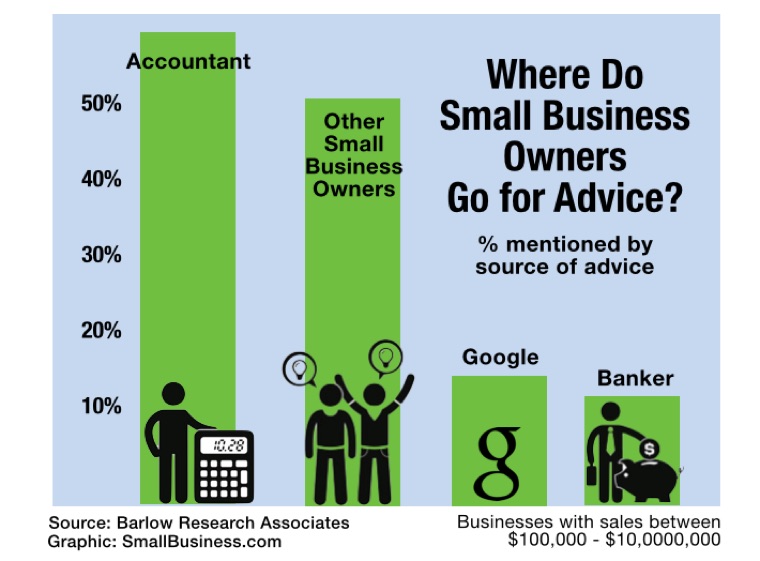Smallbusiness.com recently recapped a report by the Barlow Institute for research on where small business owners go for advice.
Surprisingly, most small business owners either turn to each other or their accountants as shown by the graphic below.

The Power of Accountants
Barlow’s research confirms what the Emergent Research’s 2013 study shared in the Intuit Future of Accountancy report.
They said that accountants will “… take on new roles as consultants and advisors, providing performance management, decision support, IT advice and similar services, with less emphasis on nuts-and-bolts functions such as computation and tax preparation.”
http://smallbusiness.com/trends/most-sought-advice-for-small-business-owners/
https://www.barlowresearch.com/index.php
